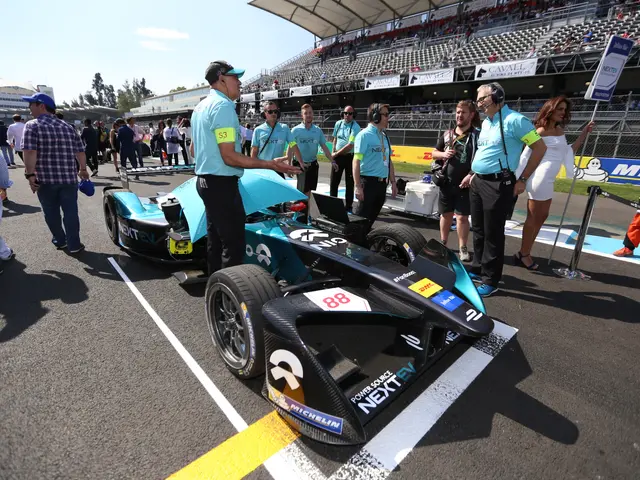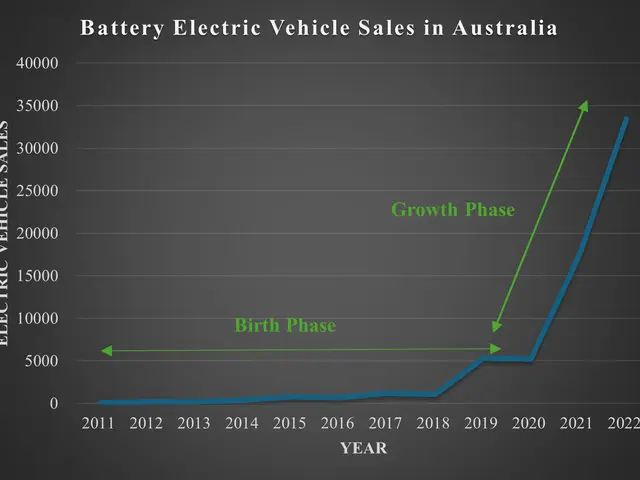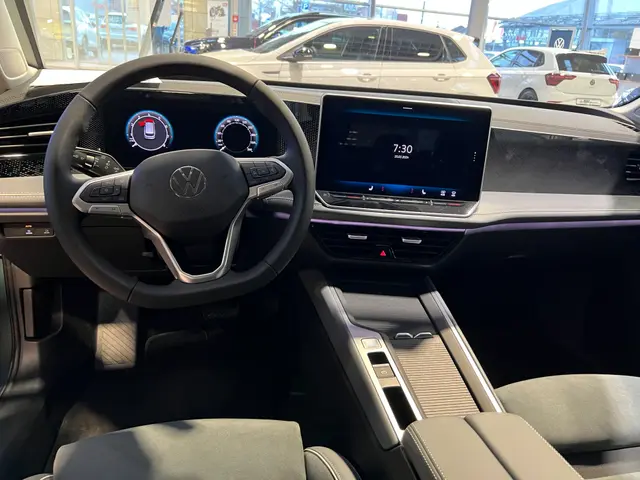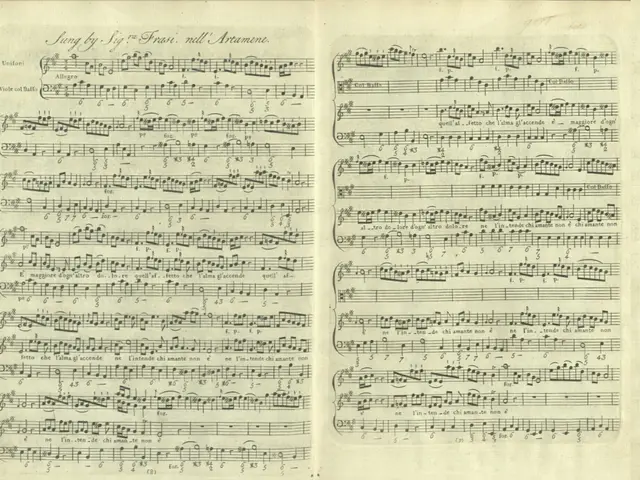Trump's U-Turn: Reducing Auto Tariffs Amid Industry Protests
Trump is set to lessen initial auto tariffs today
In a surprising move, before his trip to Michigan - the US's automotive hub - President Donald Trump plans to ease the impact of US tariffs on the auto industry. This decision comes after protests from the US auto industry, which fears the trade war may disrupt their supply chains.
The White House announced that Trump will reduce tariffs on certain foreign auto parts for cars made in the US and guarantee no increase in tariffs on cars produced abroad. This announcement is aimed at appeasing US automakers, including giants like General Motors, Toyota Motor, Volkswagen, and Hyundai.
Commerce Secretary Howard Lutnick expressed his excitement for this move, stating, "President Trump is forging a crucial alliance with our domestic automakers and our extraordinary American workers." He added that this decision benefits Trump's trade policy by favoring domestic production.
Interestingly, the Trump administration is also offering incentives to automakers willing to invest and expand their US production. However, the specific terms of these incentives are yet to be disclosed.
Meanwhile, the US auto industry has voiced concerns about potential tariffs on imported auto parts. Last week, auto associations wrote an open letter to President Trump, imploring him not to impose a 25% tariff on imported parts, set to take effect on May 3rd. These associations argued that such tariffs would create chaos in the global auto supply chain, drive up vehicle prices, reduce sales, and affect the predictability of maintenance and repair costs.
Any disruption to the supply chain could be catastrophic for auto suppliers, many of which lack the financial resources to weather such a storm. The failure of a single supplier could potentially halt production for US automakers. The letter, signed by high-profile auto industry representatives, was addressed to US Trade Representative Jamieson Greer, Treasury Secretary Scott Bessent, and Commerce Secretary Lutnick.
While the industry's response to the tariff reduction remains unclear, some auto companies like BMW and Chrysler have already taken measures to mitigate the impact of tariffs. BMW decided to absorb some tariff costs, while Chrysler and Dodge temporarily halted production for certain models.
It's essential to monitor further developments in this situation as the potential reduction in tariffs could provide relief to automakers, leading to reduced costs, more stable production levels, and slower price increases for consumers. Nevertheless, detailed responses from the US auto industry are yet to be seen.
[1] ntv.de, mau/rts[2] [Enrichment Data: Initial Tariff Impacts] The Trump administration's previous tariff policies had led to concerns within the industry about potential price increases and supply chain disruptions.[4] [Enrichment Data: Industry Concerns and Reactions] Automakers have adopted various strategies in response to the tariffs, including price adjustments and temporary production halts.[5] [Enrichment Data: Potential Reduction] The easing of tariffs could alleviate pressure on automakers by reducing costs associated with imported components.
- The European Union has expressed its support for the US automotive industry, applauding President Trump's decision to reduce auto tariffs, as this move could stabilize the supply chain and reduce costs.
- Greer, a US Trade Representative, acknowledged the importance of the European Union's stance, stating that such international cooperation is crucial for maintaining a healthy global automotive market.
- In response to the tariff reduction, WhatsApp groups dedicated to general-news and crime-and-justice have been abuzz with discussions, investigating the potential consequences for the US auto industry, its competitors, and consumers worldwide.
- Although details regarding the specific terms of incentives for US automakers are yet to be disclosed, rumors suggest that if these incentives favor European manufacturers, there could be an increase in investments and collaborations between US and EU automakers in the near future.








